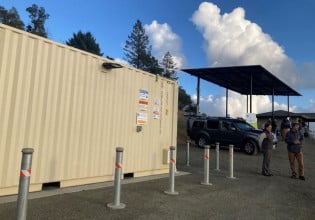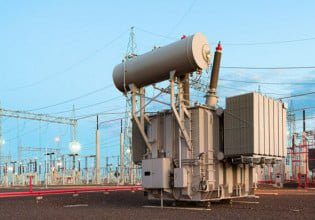Carnegie Mellon Partners With Semiconductor Research Corp. to Host Smart Grid Research Center
Carnegie Mellon University will host a new Smart Grid Research Center as part of a $5 million industry-academic partnership with the Semiconductor Research Corp. (SRC), a university-industry research consortium for semiconductors and related technologies.
The new partnership, called the Energy Research Initiative (ERI), will team energy-related companies with university researchers to address the world’s need for smart alternative energy sources and equip students with the technical skills required for the new burgeoning industry. The ERI, managed by the SRC subsidiary The Energy Research Corp. (TERC), will initially address two critical areas for efficient generation and distribution of renewable energy resources: photovoltaics and systems engineering and technologies to enable and optimize smart grids. CMU researchers will focus on the latter, as the "Smart Grid Research Center" will be housed at Carnegie Mellon.
Pradeep K. Khosla, University Professor and dean of Carnegie Mellon’s College of Engineering, said the new initiative is designed to develop reliable, affordable, secure, clean and efficient energy systems and help provide students with the expertise and skills needed to move these new technologies into the marketplace.
"The Smart Grid Research Center at Carnegie Mellon will support the incorporation of renewable energy resources and provide modeling, simulation and control tools needed to manage, optimize and secure the power grid," said Ed Schlesinger, head of CMU’s Electrical and Computer Engineering Department. Marija Ilic, a professor of electrical and computer engineering and engineering and public policy at CMU and director of the university’s Electric Energy Systems Group, will be the director of the Smart Grid Research Center.
Ilic said the Smart Grid Center is driven by the vision that it is critical to transform today’s operating and planning industry practices to serve much more complex objectives than in the past.
"Smart Grids are needed to enhance sustainability, which is a careful tradeoff between reliability (lights staying on), short-and-long term efficiency (cost of electricity), greenhouse gas emissions reduction (a cleaner world), and financially sound innovation and deployment of unconventional technologies that will help create employment opportunities," Ilic said. "For these objectives to co-exist, it is critical to engage in multidisciplinary engineering systems of smart grids."






